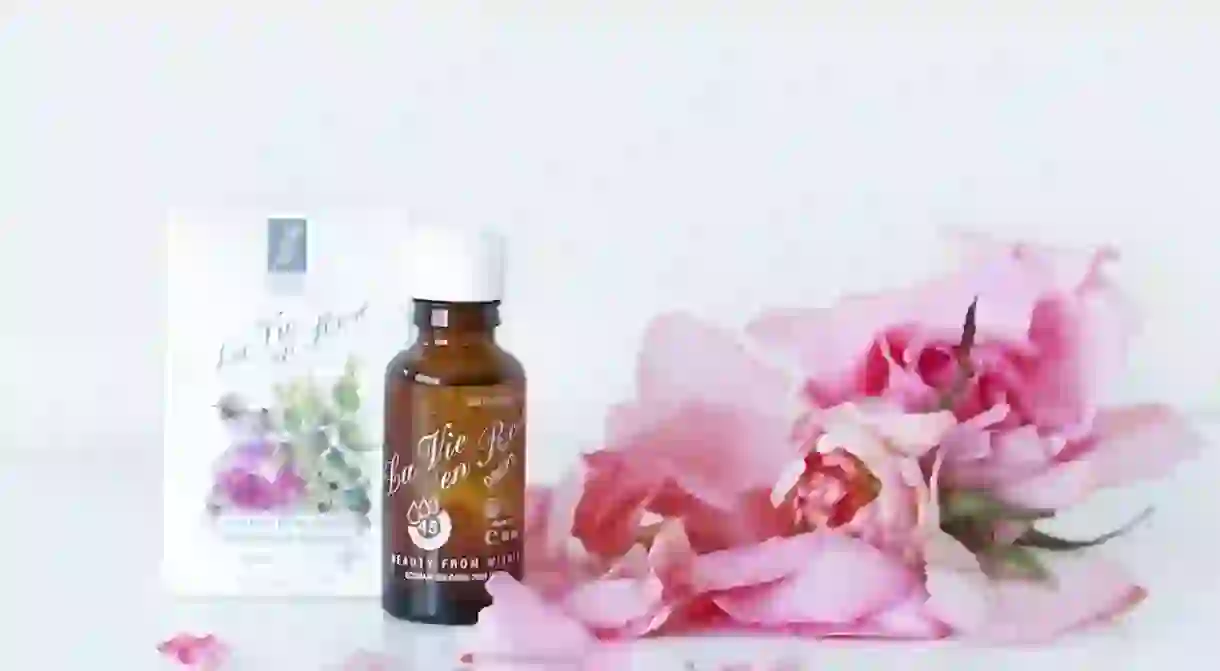What Makes Bulgarian Rose Parfum So Luxe

From Hollywood sirens to today’s designer-driven fragrances, rose remains a timeless and sensual scent. The founder of Bulgarian Rose Oil ECOMAAT explains the allure of rose parfum.
“With a nickname ‘liquid gold,’ Bulgarian Rose Oil is the most expensive among all the essential oils,” Atanas Krachmarov, founder of ECOMAAT, a luxury rose parfumerie in Bulgaria, tells Culture Trip. Founded in 2001, ECOMAAT is renowned throughout Europe and Asia, and is starting to make a dent in the U.S. market with its line of rose oils, La Vie En Rose.

If you think rose parfum is a scent reserved for your grandmother, think again. Marilyn Monroe had cases of Floris Rose Geranium delivered to the Beverly Hills Hotel, where she was staying while filming Some Like It Hot, according to Town & Country. The same article notes Ava Gardner was a fan of Creed Fleurs de The Rose Bulgare. The scent is not only popular with Hollywood pinups from the ‘50s; designers are using rose in their parfum lines. Tom Ford delivers Cafe Rose, Yves Saint Laurent, Paris Premieres Roses, and Narciso Rodriguez, Rose Musc. Search Instagram for the hashtag “rose perfume” and you’ll find the top beauty influencers snapping their favorite fragrances for their feed.
So what is so alluring about the scent of rose? “It has a rich, heady fragrance,” says Krachmarov. “There are hundreds of compounds creating the magnificence of its fragrance—it sets a worldwide benchmark for quality.”

In particular, Bulgarian rose—cultivated from the blossoms of Rosa Damascena—is recognized as the creme de la creme of roses. “This fabled Rosa Damascena species has been cultivated in Bulgaria for nearly four centuries,” says Krachmarov. “Bulgaria’s Rose Valley region produces the highest performance rose essential oils in the world, due to both perfected production techniques and the properties of the Bulgarian rose itself, which has been shaped by generations of careful cultivation and from Bulgaria’s unique geography.”
Krachmarov notes that because of its high cost, many manufacturers use alternate rose cultivars and synthetics in their perfumes. However, the benefits of Bulgarian Rose Oil, which include anti-inflammatory, astringent, relaxant, and aphrodisiac properties “cannot be duplicated or replicated.” A study conducted by the US National Library of Medicine confirms these claims, indicating rose oil can lower stress and promote the healing of wounds. Another US National Library of Medicine study indicates the anti-inflammatory properties of rose.

The high cost of rose oil, which makes rose parfum a luxury, is due in part to the extraction process. “Approximately 1,500,000 rose blossoms are necessary to make one kilogram of Bulgarian Rose Oil,” says Krachmarov. “Immediately after the roses are hand-picked from a field, they are sent to a distillery. Essential oil extraction begins while the blossoms are at their peak, still fresh and fragrant.” Highly trained specialists use a steam distillation method to retain the correct properties of the essential oil. ECOMAAT also uses carbon dioxide under low temperature and high pressure to extract the oil without degrading the its bioactive properties. Authentic Bulgarian rose flower water, touted for its anti-acne and anti-aging properties (a study by the US National Library of Medicine also confirms the skin purifying benefits of rose extract) is what Krachmarov calls the “distillate extracted from steam distillation.” In other words, pure rose water is not a by-product, but a quality product in its own right.
Whether you’re choosing a designer rose fragrance or an essential oil, be sure to read the ingredients carefully to know exactly what type of rose you’re paying for. As Gertrude Stein says, “a rose is a rose is a rose,” unless of course, it’s a Bulgarian rose.













